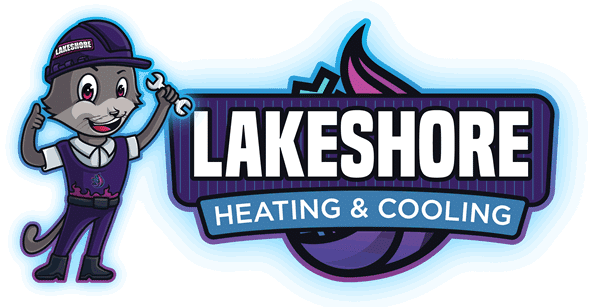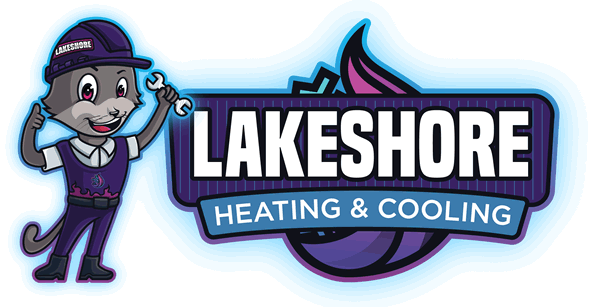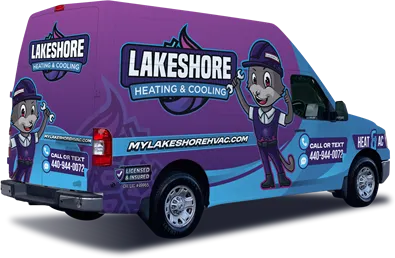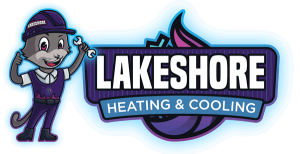Professional Gas & Oil Furnace Installations In Eastlake, Ohio.
When it comes to keeping your home warm and comfortable during Ohio’s cold winters, you need a reliable heating system that fits your needs. At Lakeshore Heating & Cooling, we specialize in professional gas and oil furnace installations in Eastlake and the surrounding areas.
Whether you prefer the energy efficiency and lower emissions of a natural gas furnace or the high heat output of an oil-burning furnace, we install top-quality Trane systems tailored to your home’s specific requirements.
With our expert installation services, you can expect efficient, durable heating solutions that ensure your home stays warm throughout the season. Our team of certified furnace technicians will help you choose between a gas or oil furnace, depending on your fuel source, energy preferences, and budget. We take care of everything—from system selection to professional installation—so you can enjoy peace of mind and reliable heat for years to come.

If you'd like to schedule an estimate for your furnace installation please give us a call (440) 944-0072 or fill out our online estimate request form and we'll get right back to you.
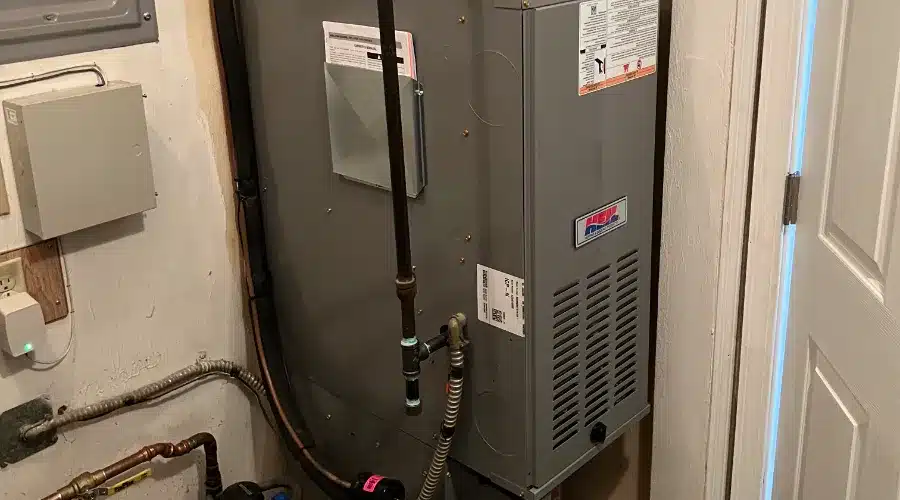
What Are The Differences Between Gas & Oil Furnaces?
At Lakeshore Heating & Cooling, we install both gas and oil-burning furnaces from Trane, offering homeowners reliable heating solutions. While both types of furnaces are effective at keeping your home warm, they have some key differences in terms of fuel source, cost, efficiency, and maintenance. Here's a closer look at the differences between gas and oil furnaces:
Fuel Source and Availability
- Gas Furnaces: Natural gas furnaces rely on a consistent supply of natural gas from your local utility provider. They are ideal for homes with easy access to a gas line and are popular in urban and suburban areas where gas infrastructure is well-established. Gas is typically delivered via pipelines, making it a convenient and uninterrupted heating source.
- Oil Furnaces: Oil-burning furnaces use heating oil stored in a tank on your property. Oil furnaces are commonly used in rural areas where natural gas lines may not be available. With oil furnaces, homeowners need to monitor oil levels and schedule regular deliveries to ensure they don’t run out of fuel during the heating season.
Cost of Fuel
- Gas Furnaces: Natural gas is generally more cost-effective than heating oil, making gas furnaces more economical to operate over the long term. Gas prices tend to be more stable, and the fuel burns cleaner, contributing to overall energy efficiency and lower heating bills.
- Oil Furnaces: Heating oil prices can fluctuate based on market conditions, and oil tends to be more expensive than natural gas. However, oil furnaces can generate higher levels of heat, which may be beneficial in extremely cold climates, but you’ll need to budget for oil deliveries and storage.
Efficiency
- Gas Furnaces: Modern gas furnaces are highly efficient, with AFUE (Annual Fuel Utilization Efficiency) ratings often ranging from 90% to 98%. This means that gas furnaces can convert most of the fuel into heat with very little waste. Gas furnaces are known for their clean combustion and lower greenhouse gas emissions compared to oil systems.
- Oil Furnaces: While oil furnaces can also be efficient, their AFUE ratings generally fall between 80% and 90%, making them slightly less efficient than gas furnaces. However, oil furnaces can produce more heat per gallon of fuel, making them effective in colder regions where higher heat output is needed.
Maintenance and Longevity
- Gas Furnaces: Gas furnaces typically require less maintenance than oil furnaces because they burn cleaner and produce fewer byproducts like soot. Regular inspections of the gas lines and heat exchanger are important, but overall, gas systems are known for their low-maintenance operation.
- Oil Furnaces: Oil furnaces require more frequent maintenance because they tend to produce soot and residue during combustion. Homeowners will need to schedule regular cleanings of the furnace, burner, and chimney to maintain efficient operation. Oil tanks also require monitoring for potential leaks or corrosion.
Environmental Impact
- Gas Furnaces: Natural gas is a cleaner-burning fuel, producing less carbon dioxide and other emissions compared to oil. This makes gas furnaces a more environmentally friendly option.
- Oil Furnaces: While oil furnaces can provide powerful heat, they tend to produce more emissions, including CO2, soot, and other byproducts. However, newer oil furnaces are designed to be more efficient and can use biofuels, which reduce their environmental impact.
Both gas and oil furnaces have their advantages depending on your location, fuel availability, and heating needs. Whether you prefer the efficiency and lower emissions of a gas furnace or the powerful heat output of an oil furnace, Lakeshore Heating & Cooling can help you choose and install the right Trane furnace for your home.
If you'd like to schedule an estimate for your furnace installation please give us a call (440) 944-0072 or fill out our online estimate request form and we'll get right back to you.
Is It Worth Replacing My Old Furnace Or Should I Convert To A Heat Pump Instead?
If you have an older furnace and are considering whether to replace it with a modern unit or convert to a heat pump, it’s important to evaluate your specific situation. Both options have their advantages, but the right choice depends on factors like your home’s climate, energy costs, and your long-term heating and cooling needs. Here’s a comparison to help you decide:
Replacing Your Old Furnace
If your furnace is more than 10-15 years old, it’s likely less efficient than modern units. Today’s gas and oil furnaces are highly efficient, with AFUE ratings as high as 98% for gas models. Replacing an old furnace with a new one can result in lower energy bills, reliable heat output, and a significant reduction in repair costs over time.
When should you replace your furnace?
- Cold Climates: In areas like Eastlake, Ohio, where winters are long and harsh, gas or oil furnaces provide consistent, powerful heating. A new furnace can ensure reliable warmth even in the coldest months.
- Existing Fuel Infrastructure: If you already have a gas line or oil tank, replacing your furnace is typically a straightforward and cost-effective option. It allows you to continue using your existing infrastructure without major upgrades.
- Lower Upfront Costs: Furnace replacement is often less expensive upfront compared to heat pump installation, especially if your ductwork and fuel supply are already in place.
Converting to a Heat Pump
Heat pumps are highly efficient because they transfer heat rather than generate it, providing both heating and cooling from a single system. Newer heat pump technology, including cold-climate heat pumps, can operate efficiently even in low temperatures, making them a viable alternative to traditional heating systems in many areas.
When should you consider converting to a heat pump?
Moderate Climates: If you live in an area with milder winters, a heat pump may be more cost-effective in the long run. It can provide energy-efficient heating during the colder months and cooling in the summer.
Lower Energy Bills: Heat pumps are typically more energy-efficient than furnaces, especially when powered by electricity. If your energy costs are high, converting to a heat pump could lead to substantial savings over time.
Eco-Friendly Option: For homeowners looking to reduce their carbon footprint, heat pumps offer an environmentally friendly alternative to gas or oil furnaces. Heat pumps produce fewer greenhouse gases and use electricity rather than burning fossil fuels.
Year-Round Use: Unlike a furnace, which is solely for heating, a heat pump provides both heating and cooling. This makes it a great all-in-one solution if you want to replace both your furnace and air conditioning system at the same time.
Which Option Is Best for You?
Replace your furnace if you live in an area with very cold winters, already have an efficient fuel supply, or need a system that delivers strong, reliable heat during extreme cold. Furnaces are a dependable choice for consistent heating, especially if you’re not concerned about cooling in the summer.
Convert to a heat pump if you’re seeking greater energy efficiency, live in a milder climate, or want a dual-purpose system that provides both heating and cooling. Heat pumps are ideal for homeowners looking to lower their energy bills and reduce their environmental impact.
Ultimately, the decision depends on your home’s climate, energy costs, and your long-term needs. At Lakeshore Heating & Cooling, we can help you evaluate the pros and cons of each option based on your specific situation and provide professional installation for both Trane furnaces and heat pumps.
If you'd like to schedule an estimate for your furnace installation please give us a call (440) 944-0072 or fill out our online estimate request form and we'll get right back to you.
How Do We Choose The Right Furnace To Install In Your Home?
At Lakeshore Heating & Cooling, choosing the right furnace for your home is more than just selecting a brand or model. It involves evaluating several important factors to ensure your new heating system meets your specific needs for comfort, efficiency, and budget. Here’s how we determine the best furnace for your home:
1. Age of the Home
Older homes may have different heating requirements than newer ones. We assess the home’s insulation, windows, and building materials to determine how much heat is required to keep your home warm. Homes with older insulation or drafty windows may need a higher-capacity furnace to maintain comfort, while newer, energy-efficient homes may require less heating power.
2. Existing Ductwork and Heating Systems
If your home already has a ductwork system in place, we evaluate its condition and compatibility with modern furnaces. Older ductwork may need modifications to ensure efficient airflow, while newer duct systems are often ready for seamless furnace integration. We also check if your home currently has a gas, oil, or electric system, which helps guide whether to install a gas or oil furnace, or if converting to a different type of system might be beneficial.
3. Size of the Home
The size of your home is one of the most important factors in furnace selection. A furnace that’s too small will struggle to heat the space efficiently, while an oversized furnace can cycle on and off too frequently, wasting energy and wearing out faster. We perform a Manual J load calculation to determine the appropriate furnace size, ensuring optimal heating performance based on your home’s square footage and layout.
4. Amount of Space to Be Heated
We take into account the number of rooms and the total space to be heated. For homes with multiple floors or zoned heating systems, we may recommend a furnace that can support those requirements, or suggest options like dual-stage or variable-speed furnaces that adjust output based on heating demands in different areas of the home.
5. Energy Efficiency
Energy efficiency is a top concern for many homeowners. We offer high-efficiency furnaces with AFUE (Annual Fuel Utilization Efficiency) ratings of 90% or higher, which means they convert the majority of their fuel into heat. If lowering your energy bills and reducing your environmental impact is a priority, we can recommend ENERGY STAR®-certified furnaces that maximize energy savings.
6. Budget Considerations
We understand that budget plays a major role in deciding which furnace to install. We offer a range of Trane furnaces at different price points, from high-efficiency models to more affordable standard options. Our team will work with you to find a furnace that meets your heating needs without exceeding your budget. Additionally, we discuss potential long-term savings from high-efficiency models, which may have a higher upfront cost but offer significant energy savings over time.
7. Climate and Usage Patterns
In colder climates like Eastlake, Ohio, where winter temperatures can be extreme, we recommend furnaces with higher heating capacities and efficiency to ensure reliable performance during the cold months. We also consider how often you use your heating system—whether it’s running constantly or only during peak times—when recommending a furnace model that suits your lifestyle.
8. Available Fuel Sources
The type of fuel available to your home—whether it's natural gas, heating oil, or electricity—is another critical factor. If you already have an established gas line or oil tank, it often makes sense to install a furnace that runs on that fuel source. For homeowners looking to switch to a more energy-efficient or eco-friendly option, we can discuss converting from oil to gas, or even switching to heat pumps.
By evaluating these factors, we can recommend the perfect Trane furnace for your home, ensuring it provides the right balance of comfort, efficiency, and cost-effectiveness. Our professional installation services ensure that your furnace is set up to perform at its best, keeping your home warm and comfortable all winter long.
If you'd like to schedule an estimate for your furnace installation please give us a call (440) 944-0072 or fill out our online estimate request form and we'll get right back to you.
Why Choose Lakeshore Heating & Cooling For Your Furnace Installation?
We know you have dozens of choices when it comes to hiring a company to install a a new furnace or replace your older unit. Here's what makes us different.
#1. Family-Owned Tradition: With roots in a family business, we bring years of experience and values passed down through generations. Our commitment to honesty, integrity, and pride in workmanship ensures you get the quality service you deserve.
#2. Customer-First Approach: We’re not focused on pushing sales or unnecessary upgrades. Our priority is making sure you’re comfortable and satisfied with our work, offering personalized solutions that fit your needs. With a 5 star rating and over 145 reviews we aim to exceed our customers expectations.
#3. Expert Craftsmanship: Taught by a master of the trade, we take pride in the quality of our work. Every job, big or small, is handled with care and attention to detail.
#4. Honoring Legacy, Building Trust: We named our company Lakeshore to honor our family’s legacy and our promise to deliver the same level of respect, trust, and professionalism that our founder stood for.
#5. Reliable and Transparent: From initial consultation to project completion, we’re with you every step of the way. Our team provides honest assessments and clear communication, so you always know what to expect. Choose Lakeshore Heating and Cooling for service rooted in tradition, trust, and a dedication to your comfort. --- This emphasizes the company's core values, customer focus, and high-quality service.
If you'd like to schedule an estimate for your furnace installation please give us a call (440) 944-0072 or fill out our online estimate request form and we'll get right back to you.
Do You Have Questions About Furnace Installation?
The choice between gas and oil furnaces depends on several factors. Gas furnaces are typically more energy-efficient and cost-effective in the long term, especially in areas where natural gas is readily available. Oil furnaces, on the other hand, may be better suited for homes in rural areas without access to natural gas lines. Additionally, oil furnaces provide more heat per gallon of fuel but require more maintenance than gas furnaces. Our team can help you decide based on your home’s location, fuel availability, and heating needs.
The installation process for a new gas or oil furnace usually takes about one to two days. This timeline includes removing the old furnace, preparing the installation site, and setting up the new furnace. If additional work is required, such as modifying the ductwork or installing a new fuel line, it may take longer. Our team will provide an estimate based on your specific installation needs.
On average, a well-maintained gas furnace lasts about 15 to 20 years, while an oil furnace can last between 15 to 25 years. Regular maintenance and timely repairs can extend the lifespan of your furnace, ensuring it runs efficiently for years. Our service agreements and maintenance plans can help you keep your furnace in top condition.
In many cases, your existing ductwork can be used with your new furnace, but modifications may be necessary if it is outdated or incompatible with the new system. We inspect your ductwork during the planning process to ensure it is appropriately sized and sealed for maximum efficiency. If any modifications are needed, we’ll discuss them with you before installation begins.
Yes, high-efficiency furnaces can offer significant long-term savings on energy bills. Modern gas furnaces can achieve AFUE ratings of up to 98%, meaning almost all the fuel is converted into heat. While high-efficiency models tend to have a higher upfront cost, they can reduce your annual heating costs and often qualify for energy rebates or incentives. Our team can help you calculate potential savings based on your home’s size and heating needs.
Yes, converting from an oil furnace to a gas furnace is possible, but it requires access to a natural gas line. If your home already has gas service, the conversion process involves removing the oil furnace and installing the gas unit along with any necessary gas piping. If your home doesn't have a gas line, we can assist with evaluating the cost and feasibility of installing one.
Gas furnaces generally require less maintenance than oil furnaces because they burn cleaner and produce fewer byproducts. However, regular filter changes and annual inspections are still necessary to keep them running efficiently. Oil furnaces, on the other hand, require more frequent maintenance, including cleaning the burner and replacing the oil filter to prevent soot buildup and ensure efficient operation. We offer comprehensive maintenance plans for both types of furnaces.
The cost of installing a new gas or oil furnace varies based on factors like the furnace’s efficiency rating, the size of your home, and whether any additional work is required (such as ductwork modifications or installing a gas line). Typically, gas furnace installations range from $3,000 to $7,000, while oil furnace installations may cost slightly more due to the added complexity of the fuel system. Our team will provide an upfront estimate before any work begins.
Yes, furnace installation usually requires local permits to ensure that the system complies with safety codes and regulations. We handle the permitting process for you, ensuring that all local building codes are met during installation. This guarantees that your new furnace is installed safely and correctly.
Many high-efficiency gas furnaces and some oil furnaces qualify for energy rebates or federal tax credits, especially if they meet ENERGY STAR® efficiency standards. These incentives can help offset the upfront cost of your new furnace. Our team can help you explore available rebates and provide guidance on how to apply for them.
Do you have questions about gas or oil furnace installation that weren't answered here? Please give us a call (440) 944-0072 or fill out our online estimate request form and we'll get right back to you.
Get Your Quote For
Furnace Installation
OUR SERVICES
TESTIMONIALS
Was available for night service call immediately upon my contacting them. Matt S was polite, friendly, and efficient. He quickly diagnosed and corrected the problem, even going above and beyond, assuring that my furnace was clean and healthy for a long time to come without the need for another service call. Very reasonable pricing. Everything was covered in the service call fee! Will definitely recommend this company!
Best around! They do care and will come in urgent matters to be sure you have heat and AC. Affordable prices, they will work with you. They have helped me and my friend in need with no heat in extreme below temps. Was there in no time! Also helped a friend with AC. Great team phenomenal work! Impressive!!
always quick and reliable and fair.
We had a new Trane furnace put in our house . They did an excellent job , fast and thorough… Very professional and polite ! Honest company we appreciate so much!! We were told by others the price was better than they paid another company 2 years ago ! We plan to use them for future needs , if there are any . Mary S.
Great company! Very professional! Everyone I spoke with was respectful and kind! I would highly recommend them! Since they are a smaller company you don’t get lost in the shuffle like with the bigger companies. They really care about their customers and did an awesome job installing my new furnace and AC. Do not hesitate to give them a call!
Matt was excellent. Exceptionally knowledgeable on the work at hand. Definitely will call back in need of there services
